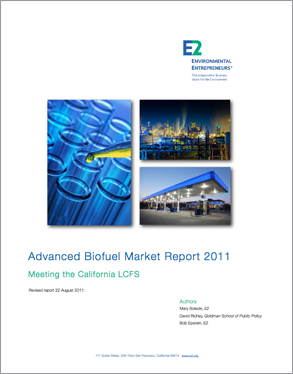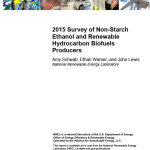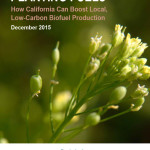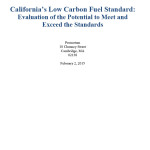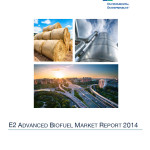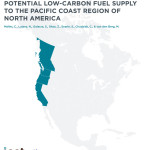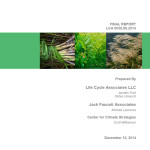2011 E2 Advanced Biofuel Market Report
Advanced biofuels are renewable transportation fuels that can replace traditional gasoline and diesel at a competitive price and
with significantly lower greenhouse gas (GHG) emissions.1 This report collects data from a variety of public sources and private interviews for the purpose of summarizing current economic activities in the advanced biofuel industry.
California enacted the Low Carbon Fuel Standard (LCFS) regulation in 2007 as part of the Global Warming Solutions Act of 2006 (known as AB 32). The LCFS requires that, by 2020, blenders, refineries, importers and distributors of transportation fuels reduce the “carbon intensity” (CI) of the fuels they sell by ten percent below a 2006 gasoline and diesel baseline. While the LCFS will be achieved with a variety of alternative fuels including electricity and natural gas, this report examines the ability to meet the reduction target only through the use of advanced biofuels in gasoline and diesel vehicles.
California uses approximately 18 billion gallons of transportation fuel per year.2 E2’s research shows that the vast majority of advanced biofuels are expected to possess just one quarter the CI of gasoline. For simplicity’s sake, this report assumes that reduced travel and improvements in fuel efficiency will keep demand constant at 18 billion gallons per year through 2020. Therefore a ten percent reduction in carbon intensity could be met with a combination of 15.6 billion gallons of traditional fuel plus 2.4 billion gallons (gasoline equivalent) of advanced biofuels (assuming advanced biofuels’ CI is one quarter that of gasoline and that traditional fuels’ CI does not increase). To meet the earlier 2015 milestone of a 2.5 percent reduction, 600 million gallons (gasoline equivalent) of advanced biofuels are needed – although the 2015 target is more likely to be met with a combination of improved CI ethanol and advanced biofuels.
This report does not claim nor is it designed to prove that the private sector will produce 2.4 billion gallons (gasoline equivalent) of advanced biofuel for the California market. Rather it provides evidence that the combination of market forces and public policies has put the advanced biofuel technology and industry in the United States on a path where it should be able to produce a significant amount of low-carbon fuel in the next few years, thereby making it possible to deliver sufficient fuel to meet the California LCFS… Read full report »
Filed in: Reports & Studies

